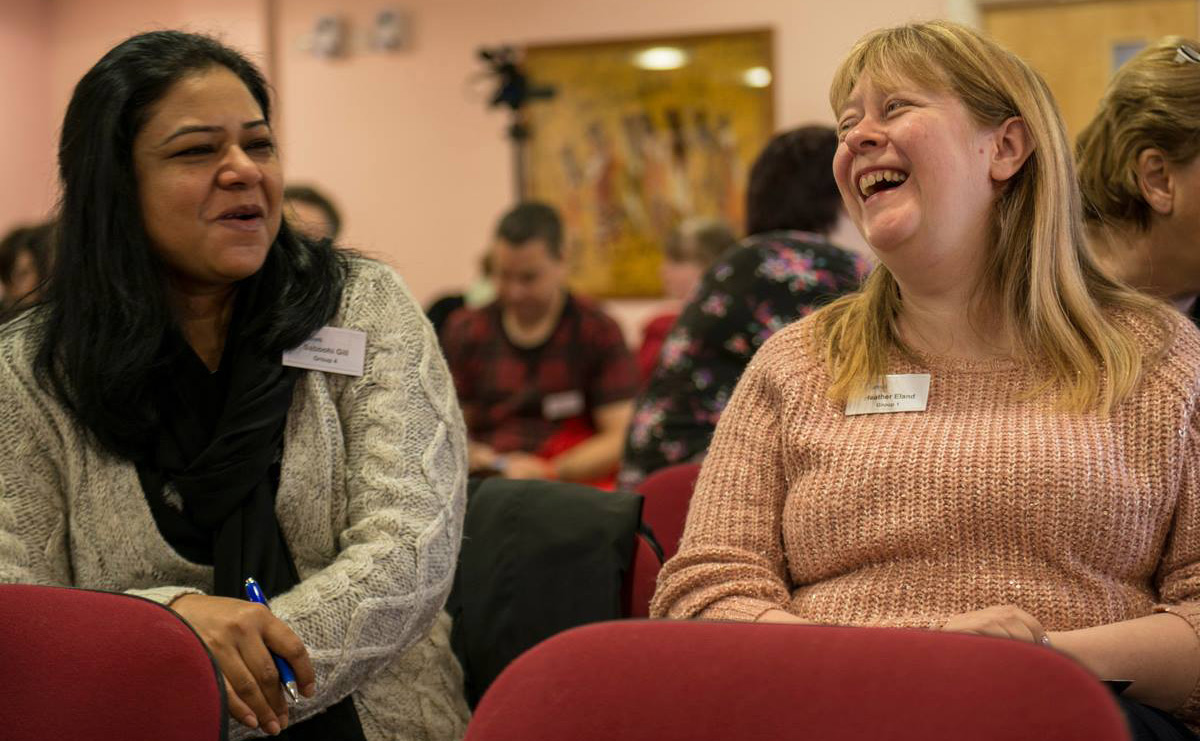Application and Assessment Process
We have sought to outline our process with greater clarity and so have broken the process into four sections:
Enquire
The first steps often taken are for someone to make a phone call or send an email to the Towards Ministry Team. The Team will be delighted to hear from you! You'll be informed about upcoming opportunities to hear more and to start thinking things through – these are our ‘Celebrating Calling' day events and our four week online ‘Conversations in Calling' groups. Neither of these is required but they often prove to be hugely helpful and so are recommended.

Thereafter, you become an enquirer. You may have spoken with a spouse, close friend or minister or you may not have shared your thoughts with anyone. You will be tentative in your approach and sensitive to responses. The task of the Team is to help you discern your next steps, giving encouragement, information and confidence to further explore.
While what is outlined applies to our traditional routes of entry into the nationally-recognised ministries, please do contact us if you are already a minister of another denomination. We can explain our process of application and advise you on the next steps you require to take.
Explore
The exploring period of our process leads people into more formal discernment. During this time the enquirer becomes an applicant and will be pursuing one of the nationally-recognised ministries (for certain of our ministries, age restrictions apply, and these will be discussed with the Team). They need not declare until the end of the process which one that is (if any), but will be assessed for that ministry at their Local Review.
A crucial part of this period is the Discernment Conversation. This normally leads to a six-month placement in a local congregation with a Mentor. The Presbytery will play an essential part in this period, with a Presbytery Assessor meeting the applicant at least once a month and contributing to the Local Review at the end of discernment.
Explore – Application Process
Application Form
- Background details
- Education and Employment
- Hobbies and Interests
- Church Experience
- Expression of Calling
Discernment Conversation
- Self-Disclosure (Safeguarding)
- Profile Match
Period of Discernment
- Placed in a congregation (normally 6 months)
- with Mentor
- Presbytery Assessor
The discernment conversation remains vital as a touching point with the Team. It allows space for questions and the sharing of thoughts outwith any formal assessment. As such it remains a compulsory element within the process.
Evaluate
As an applicant travels through discernment, the role of the Local Review allows them to focus on decisions regarding their future ministry, namely if they wish to progress further, and if so, to which form of nationally-recognised ministry.
At the Local Review, the applicant meets with their Mentor, Presbytery Assessor and a National Assessor. A full discussion will take place, with several outcomes:
- That an applicant proceeds to a National Assessment Conference to be assessed for their chosen ministry entry for the Ordained Local Ministry (OLM) or Fulltime Word and Sacrament (FTWAS).
If an applicant is being assessed for the Readership, then the Local Review will decide for this ministry without the need to go to National Assessment Conference.
- That the applicant is not ready to proceed to assessment conference and should be given an extended period of discernment for a period of time.
- That the applicant is not ready to proceed to be considered at assessment conference.
- That final consideration has been made and it will not be possible for the applicant to proceed to assessment conference, now or in the future.

It must be emphasised that the assessment being made is in relation to the nationally-recognised ministries. While it is hoped that after a period of both informal and formal discernment the applicant is on the appropriate pathway, it may be that they are not. While it can be disappointing for an applicant to receive a decision they would not wish, this is not a rejection of them or their service to the Church. It means that either further time is required before they enter training or that they should consider other avenues of service. When Joseph is rejected by his family and sold into slavery, his life's journey takes a different route. Yet, God was working within the situation at all times. Only later in his story do we find that that his early rejection works for the better good. We recognise that this can be difficult for someone to hear, but trust in the goodness of God to work within them and our processes to ensure the best outcome for all.
National Assessment
For those applying to the OLM or FTWAS, the next part in the process is attendance at a National Assessment Conference. This is an overnight gathering overseen by our team of National Assessors. A member of the Towards Ministry team is always in attendance.
This gives an applicant the opportunity to explain their sense of call to the National Assessors, with leadership and team skills, openness to learning, reflective skills, ability to handle and facilitate change, the integration of their life and faith and their discernment of their call fully assessed. These areas are measured against the Indicators for Assessment, with a decision made at the end of the conference by the Assessors whether an applicant is an ACCEPT or non-ACCEPT for their chosen area of nationally-recognised ministry.
Again, for those receiving a non-ACCEPT it must be emphasised that this is not a rejection of them, their faith or their service in the life of the Church. While this can be difficult to hear, we would highlight the responsibility we carry for those within our process. To accept someone when they are not ready or would find either the training or future outworking of a particular area of ministry too demanding, we pray and trust that God will show them the pathways He has set for them, and that while this door may have closed, many others remain open for perusal.
Evaluate - Application Process
Local Review – outcomes
- access to National Assessment Conference or to Readership training (as relevant)
- further discernment provided
- further discernment required in due course
- no progress possible
Readership Applicants
- enter training period
Diaconate/OLM/FTWAS Applicants
- Accept or non-ACCEPT from National Assessment Conference
Enter

Applicants on acceptance by a National Assessment Conference, and by their presbytery then become Candidates for Ministry, subject to both the Protecting Vulnerable Groups (PVG) scheme and Occupational Health clearance. Those accepted for the Readership become Readers-in-Training.
An Initial Course Meeting will take place with our Training Officer, with a personalised training programme outlined. This will include the academic course route, placements and conference programme to be undertaken as well as other elements e.g. Church Law that are a requirement for all Candidates.
A Formation Partner is also appointed by their Presbytery and they will accompany a Candidate throughout their training, with annual appraisals used to monitor their progress and development.
Enter – Entering training period
Receiving an ACCEPT from National Assessment Conference
Initial Course Meeting with a Training Officer
- Begin academic study and placements
- Conference and Ministry Training Network
- Receive formational and financial support from National Church and Presbytery
Glossary:
Enquirer: someone who has expressed an interest in pursing their call to God's service.
Applicant: someone who has applied to be accepted for training for one of the nationally-recognised ministries.
Candidate for Ministry: someone who has been accepted for training as an OLM or FTWAS
OLM: Ordained Local Minister (non-stipendiary, Presbytery deployed)
FTWAS: Fulltime Minister of Word and Sacrament
Reader-in-Training: someone who is training for the Readership
Reader-in-Service: someone who has been set apart to serve as a Reader